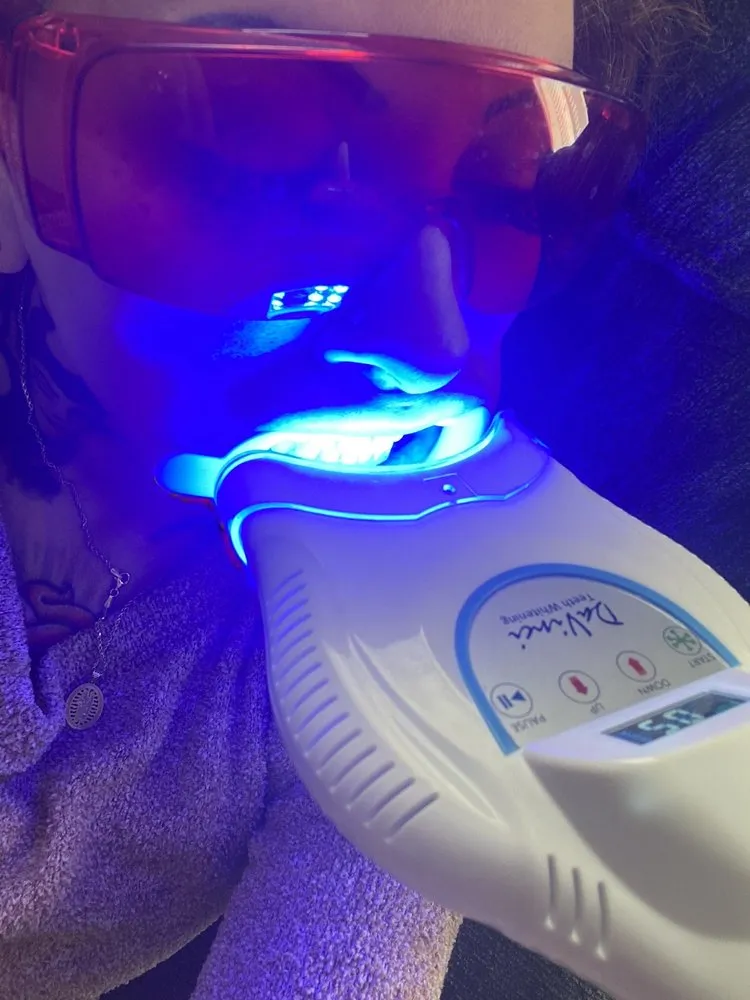Understanding Teeth Whitening
Teeth whitening is a popular cosmetic dental procedure designed to lighten the color of your teeth and remove stains and discoloration. Whether it’s due to coffee, tea, tobacco, aging, or certain medications, many people seek teeth whitening to enhance their smile and boost their confidence. In Denver, Colorado, a city known for its beautiful smiles and active lifestyle, teeth whitening is a sought-after treatment. Understanding the basics of teeth whitening is the first step toward achieving a brighter, more radiant smile. This process typically involves bleaching the teeth to remove stains and discoloration, resulting in a noticeably whiter appearance. There are various methods available, from professional treatments offered by dentists to over-the-counter options, each with its own advantages and considerations.
What is Teeth Whitening
Teeth whitening involves the use of bleaching agents, typically hydrogen peroxide or carbamide peroxide, to break down stain molecules within the enamel and dentin of your teeth. This process essentially lifts the stains, making your teeth appear lighter. The effectiveness of the whitening process depends on the concentration of the bleaching agent, the duration of application, and the type of staining present. The procedure is generally safe when performed under the supervision of a dental professional. However, it’s essential to understand the process, potential side effects, and the varying results you can expect. In Denver, many dental clinics offer consultations to explain the process and determine the best approach for your specific needs, taking into account the cause and severity of discoloration.
Types of Teeth Whitening Procedures
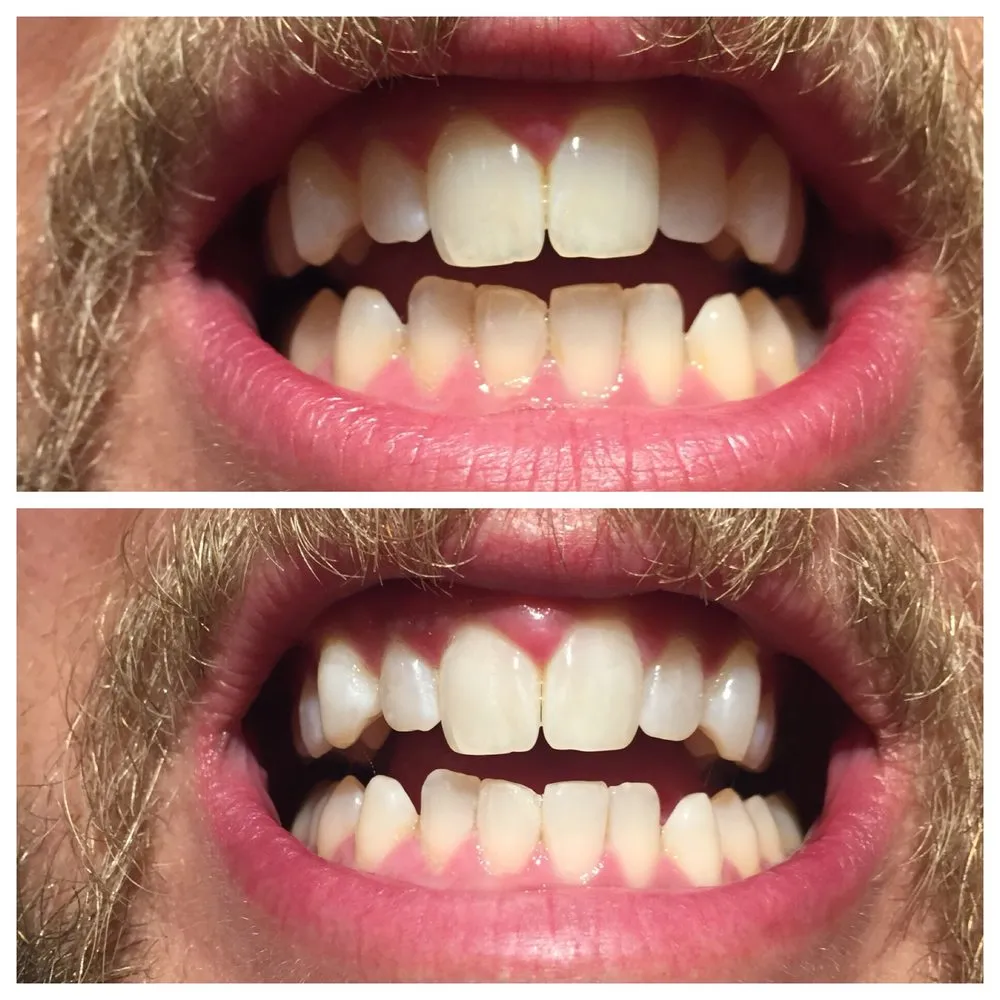
There are primarily two categories of teeth whitening procedures professional and at-home treatments. Professional teeth whitening, often performed by a dentist in Denver, involves a higher concentration of bleaching agents, providing faster and more dramatic results. These procedures can be done in-office, sometimes with the use of a special light or laser to accelerate the whitening process. At-home options include custom-fitted trays provided by your dentist, which are filled with a bleaching gel and worn for a specified amount of time each day, or over-the-counter products like whitening strips, toothpastes, and mouthwashes. Professional treatments generally offer more predictable and significant results, but at-home methods can be a more affordable option for maintaining or gradually improving your smile. The best choice depends on your individual needs, the degree of staining, and your budget. (Image teeth-whitening-procedures)
Professional Teeth Whitening vs. Over-the-Counter
Professional teeth whitening offers several advantages over over-the-counter products. Dentists in Denver can use stronger bleaching agents, leading to faster and more effective results. They also have the expertise to address specific dental conditions, such as tooth sensitivity or existing dental work, which might affect the whitening process. Professional treatments are often more customized to your individual needs, ensuring a better fit and more even whitening. On the other hand, over-the-counter products are generally more affordable and accessible, making them a convenient option for many. However, the results are often less dramatic and may require more time to achieve noticeable changes. It is important to consult your dentist before deciding on a whitening method. (Image professional-teeth-whitening)
Top 7 Facts About Teeth Whitening in Denver
Fact 1 Benefits of Teeth Whitening
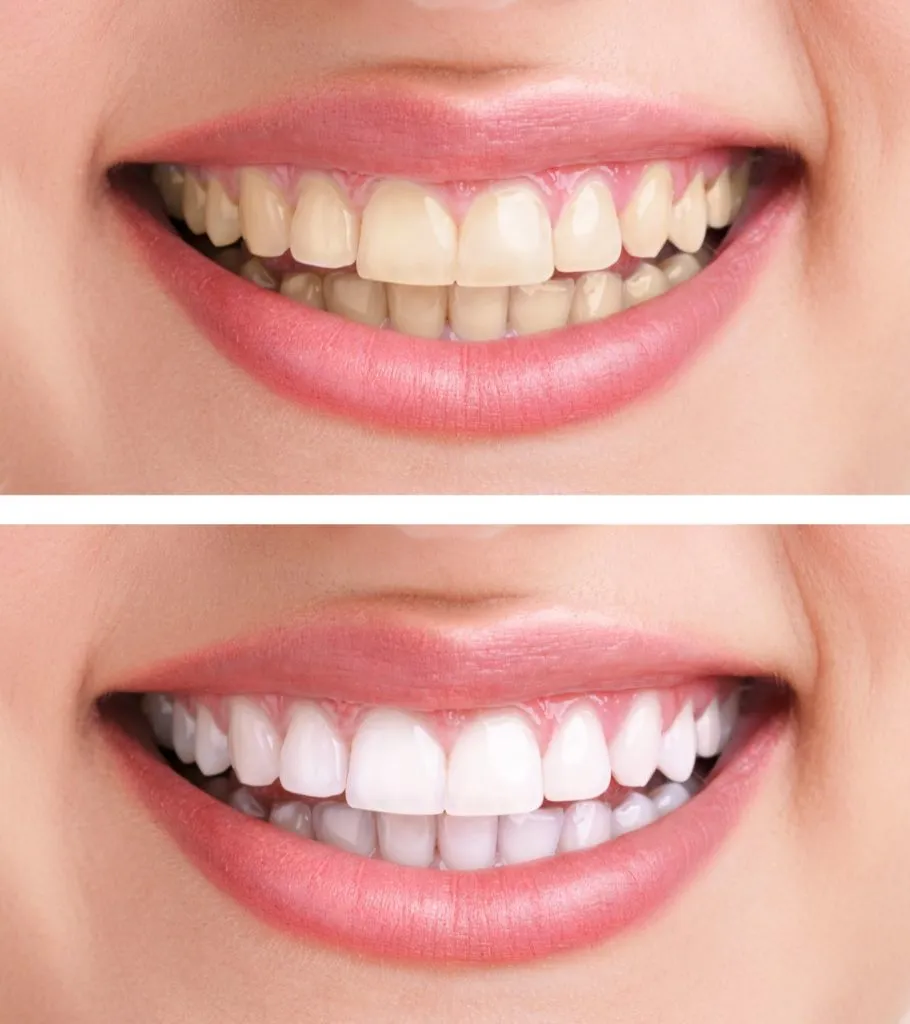
The most immediate benefit of teeth whitening is a brighter, more attractive smile. This can significantly boost your self-esteem and confidence, leading to a more positive self-image. Beyond the cosmetic benefits, teeth whitening can also motivate you to improve your oral hygiene habits. A brighter smile often encourages people to take better care of their teeth, leading to improved overall dental health. In Denver, where image and appearance are highly valued, the benefits of teeth whitening extend to social and professional settings, helping individuals make a positive first impression. Studies show that a brighter smile can make you appear more approachable, friendly, and successful. A confident smile can open doors in both personal and professional life.
Fact 2 The Whitening Process
The teeth whitening process typically involves a consultation with a dentist to assess your teeth and determine the best approach. Professional in-office whitening involves applying a high-concentration bleaching agent to your teeth and activating it with a special light or laser. The process usually takes about an hour and can provide immediate results. At-home whitening often involves custom-fitted trays filled with a bleaching gel, which you wear for a set amount of time each day, over a period of a few weeks. Over-the-counter options, such as whitening strips, are also available. Regardless of the method, the bleaching agent penetrates the enamel and dentin, breaking down the stain molecules. The process may require multiple sessions depending on the desired level of whitening and the severity of the staining. A typical professional whitening session in Denver will involve protecting your gums and soft tissues. (Image teeth-whitening-process)
Fact 3 Sensitivity and Side Effects
Tooth sensitivity is a common side effect of teeth whitening. The bleaching agents can temporarily make your teeth more sensitive to hot and cold temperatures. This sensitivity usually subsides within a few days after the treatment is completed. Other potential side effects include gum irritation or minor soft tissue burns, which are usually temporary and resolve quickly. To minimize these side effects, dentists in Denver often use desensitizing agents and recommend specific oral hygiene practices. If you experience any severe or persistent side effects, it is important to consult your dentist immediately. Individuals with existing dental conditions or sensitive teeth should discuss these concerns with their dentist before starting a teeth whitening treatment. (Image teeth-whitening-sensitivity)
Fact 4 Cost of Teeth Whitening in Denver
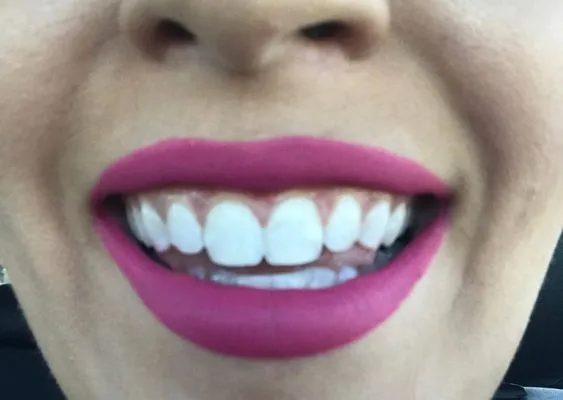
The cost of teeth whitening in Denver can vary significantly depending on the type of treatment and the dental practice. Professional in-office whitening is generally more expensive than at-home options or over-the-counter products. Factors that influence the cost include the dentist’s fees, the type of bleaching agent used, and the number of treatments required. At-home whitening kits prescribed by a dentist typically cost less than in-office procedures but more than over-the-counter products. Over-the-counter whitening strips and toothpastes are the most affordable options. It’s essential to consider the long-term value and effectiveness when evaluating the cost of teeth whitening. Many dental clinics in Denver offer payment plans or financing options to make the treatments more accessible. Researching different clinics and comparing prices will help you find the best option for your budget. It is important to note that price should not be the only factor when choosing a dentist, as experience, quality, and safety should be the primary concerns.
Fact 5 Longevity of Results
The results of teeth whitening are not permanent. The longevity of your whiter smile depends on various factors, including your diet, oral hygiene habits, and lifestyle choices. Generally, professional whitening results can last from several months to a few years, while at-home treatments may require touch-up sessions to maintain the desired shade. Consuming staining foods and drinks, such as coffee, tea, red wine, and dark-colored berries, can reduce the longevity of your results. Smoking and tobacco use can also lead to faster discoloration. Maintaining excellent oral hygiene, including regular brushing, flossing, and professional cleanings, can help extend the lifespan of your whitening. Your dentist in Denver may recommend maintenance treatments or touch-up procedures to keep your teeth looking their best. Using a whitening toothpaste or mouthwash can also help maintain your results. (Image teeth-whitening-results)
Fact 6 Finding a Qualified Dentist
Choosing a qualified and experienced dentist is crucial for safe and effective teeth whitening. Look for a dentist in Denver who is licensed and has experience performing cosmetic dental procedures. Read online reviews and check patient testimonials to assess the dentist’s reputation and the quality of their work. Schedule a consultation to discuss your goals, ask questions, and evaluate the dentist’s approach. Ensure the dentist uses high-quality products and follows proper safety protocols. Consider the dentist’s communication skills, their ability to explain the procedure clearly, and their willingness to address your concerns. A good dentist will conduct a thorough examination of your teeth and gums before recommending a whitening treatment. Make sure to confirm their accreditation and qualifications. (Image denver-dentist-consultation)
Fact 7 Aftercare and Maintenance
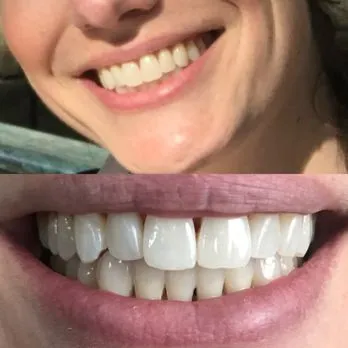
Proper aftercare and maintenance are essential to preserving your whiter smile. Follow your dentist’s instructions carefully after the whitening treatment. Avoid consuming staining foods and drinks, such as coffee, tea, and red wine, for at least a week or two after the procedure. Practice excellent oral hygiene, including brushing your teeth twice a day with a whitening toothpaste, flossing daily, and using a mouthwash. Consider using a straw when drinking staining beverages to minimize contact with your teeth. Schedule regular dental check-ups and cleanings to maintain your oral health and address any potential issues. Your dentist may recommend touch-up treatments to maintain your desired shade of white. Avoid smoking and tobacco use, as they can significantly reduce the longevity of your whitening results. Maintaining a consistent oral hygiene routine is important to keeping your teeth bright. (Image bright-smile-maintenance)
Choosing the Right Teeth Whitening Option
Factors to Consider
Several factors should be considered when choosing a teeth whitening option. Evaluate the degree and type of staining on your teeth. Consider your budget, as professional treatments are more expensive than at-home or over-the-counter options. Assess your time commitment, as professional treatments provide immediate results, while at-home methods require consistent application over several weeks. Take into account your sensitivity level, as some individuals experience more sensitivity to bleaching agents than others. Consult with a dentist to discuss your goals, address any dental concerns, and receive professional guidance. Choose a whitening method that aligns with your lifestyle, budget, and desired results. The best option is often the one that provides the desired results while ensuring the health and safety of your teeth and gums. Discuss your options with your dentist to get a personalized recommendation.
Consultation and Evaluation
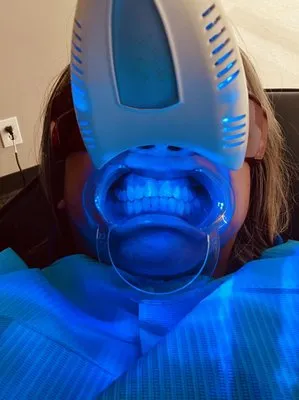
A consultation and evaluation with a dentist in Denver is a critical step in the teeth whitening process. During the consultation, your dentist will examine your teeth and gums to assess your overall oral health and identify any underlying issues. They will discuss your goals, expectations, and any concerns you may have. The dentist will evaluate the type and degree of staining on your teeth. Based on their findings, they will recommend the most appropriate whitening method and explain the process, potential side effects, and aftercare instructions. The consultation allows you to ask questions, learn about the various options, and make an informed decision. It’s an opportunity to build a relationship with your dentist and ensure you’re comfortable with the chosen treatment plan. Be sure to disclose any pre-existing conditions and medications. (Image denver-dentist-consultation)
Maintaining Your Bright Smile
Maintaining your bright, white smile requires consistent effort and attention to oral hygiene. Brush your teeth twice a day with a whitening toothpaste to remove surface stains and maintain your results. Floss daily to remove plaque and food particles from between your teeth and around the gumline. Avoid consuming staining foods and drinks, such as coffee, tea, red wine, and dark-colored berries, as much as possible. If you do consume these items, rinse your mouth with water afterward or use a straw to minimize contact with your teeth. Schedule regular dental check-ups and cleanings every six months to maintain your oral health and remove any accumulated stains. Consider using a whitening mouthwash or touch-up treatments as recommended by your dentist. Avoid smoking and tobacco use. By following these tips, you can keep your smile bright for years to come. Consistent maintenance ensures long-lasting results. (Image bright-smile-maintenance)
